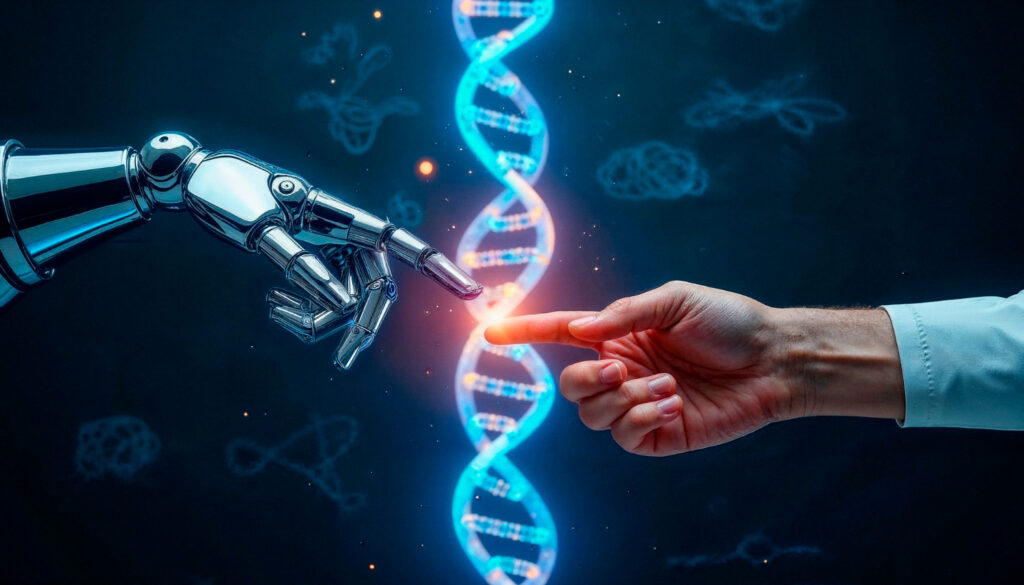Watch us in portrait mode to discover what makes us different.

In the rapidly changing world of science today, a biotechnology degree can no longer be limited to the pages of textbooks. It has to be a shift – from theory to lab, from classroom to industry, and from learning to implementation. And that is what NIIT University’s (NU) BTech Biotechnology program is – industry-linked education that not only teaches students about biotechnology but also innovates, thinks on their feet, and propels the industry.
We have a stronger industry foundation than conventional BTech Biotechnology institutions. We don’t establish our curriculum in a vacuum – it’s continuously reviewed through industry leader discourse, so what you’re learning today aligns with the needs of the biotechnology industry tomorrow.
Through collaborations with cutting-edge biotech companies, research institutions, and global experts, NU integrates:
In NIIT University, the students experience live industry projects, which enable academic concepts to be implemented in actual practice. Collaborative research enables them to collaborate with faculty, industry associations, and international collaborators on edge technologies.
Industry Practice of up to 1 year provides experience-based hands-on learning of the biotech industry, ensuring the students are industry-ready.
At NIIT University (NU), learning biotechnology goes far beyond books and classroom teaching. From the very first year, students here get to live a lively lab life, where they familiarise themselves with some of the most advanced, state-of-the-art technology that will shape the biotechnology of tomorrow.
The curriculum also emphasises tissue engineering and cell culture so that students can work with living cells within a contained environment—the stepping stone to the technologies achieved in regenerative medicine and personalised therapies. Students also become proficient technicians at developing diagnostic assays, designing tools and protocols required for efficient and effective disease detection.
NIIT University conducts experiments in environmental and agricultural biotechnology, where students interact with the environment and support agriculture. It ensures that the students are theoretically well qualified as well as eminently proficient practically, with a great scope to make their mark in laboratories that carry out research, medicine, agriculture, and the environment.
They get hands-on experience and technical proficiency, equipping students with the ability to make significant contributions in biotech companies, research labs, and start-ups immediately after graduation.
NU encourages interdisciplinarity and collaborative research, and accordingly opens up several avenues for the students to explore, innovate, and contribute meaningfully towards solving problems.
Students are engaged directly in research projects with research professors, with senior professors conducting advanced research projects. These are not class exercises but actual research projects to solve scientific and social issues of the real world. Students get exposed to formal research methods, critical thinking, and problem-solving skills that will take them to success in the biotech industry through such interactions.
NU also works with industry partners to co-innovate, such that the students are kept in touch with the real needs of the biotech sector. With leading biotechnology companies and healthcare organisations, the students work on real industry problems—whether it’s coming up with new drug delivery systems or sustainable bio-manufacturing processes that work and are affordable, or identifying genetic cure pathways for disease therapy. Such exposure to real life ensures that the students are confronted with marketplace conditions, regulatory needs, and marketplace pressures involved in placing science in the market.
Apart from this, NU’s international emphasis is supplemented by foreign university collaborations. Through these, students get opportunities for collaborative research work, exchange, and the world’s top biotechnology research. Students are likely to be given access to giving international conference presentations, working with foreign faculty, and understanding how biotechnology is improving the world.
Our biotech students already make significant contributions to effective projects in all industries. In the future, students will conduct research on new renewable energy sources to reduce the utilisation of fossil fuels. In future pharma, students work on the development of new drug agents and targeted therapies. Food safety agribiotechnology has students working on crop improvement, pest resistance, and green agricultural practices.
Mentorship is also individualised for every NU student with the faculty as a mentor and an industry mentor. One-on-one attention is given to students in:
•Untangling and developing areas of interest, whether in genetics, bioinformatics, environmental biotech, or pharma research
•Choosing research projects that map onto their plans
•Making connections in the biotech community
One-to-one mentorship system enables students to plan their learning years judiciously and become sure about career destinations — an important override over traditional BTech Biotechnology colleges.
Biotech is a global industry, and NU provides global exposure by way of:
•International university exchange programs
•International internships
•Global research interactions
The global vision expands the minds of the students but also makes them competitive and adaptable in the biotech industry.
•Curriculum developed together at the global level
•practical training and rigorous research work
•Internship and workshops with the industry partner
•Lecture by experienced professors and industry experts
•International exposure through alliances and exchange
•Career counselling for placements in top biotech industries
NIIT University’s BTech Biotechnology program is not a degree; it’s a launchpad to become future innovators. Not only are students job-ready, they are also ready for long-term, meaningful careers in the biotechnology sector, where they will be able to address some of the greatest challenges facing the world.